Orange vinegar is a great alternative to traditional household cleaners. You can use this cleaner in every room of your house – even the bathroom! It gets rid of soap scum, hard water stains, and dirt without scratching surfaces or leaving streaks behind.
A few weeks ago, we scored a great deal on California oranges and totally stocked up so I could dehydrate oranges, and even freeze oranges for Kevy's smoothie making,
It seemed like a great idea until I realized how many oranges 40 lbs of oranges were, and how much of the orange was getting 'wasted'. I mean, we always compost our orange peels, but this was large-scale.
While I was cleaning up from the first round of oranges, using my favorite kitchen cleaner it hit me.
This orange peel vinegar recipe is dedicated to a orange-r cleaner.
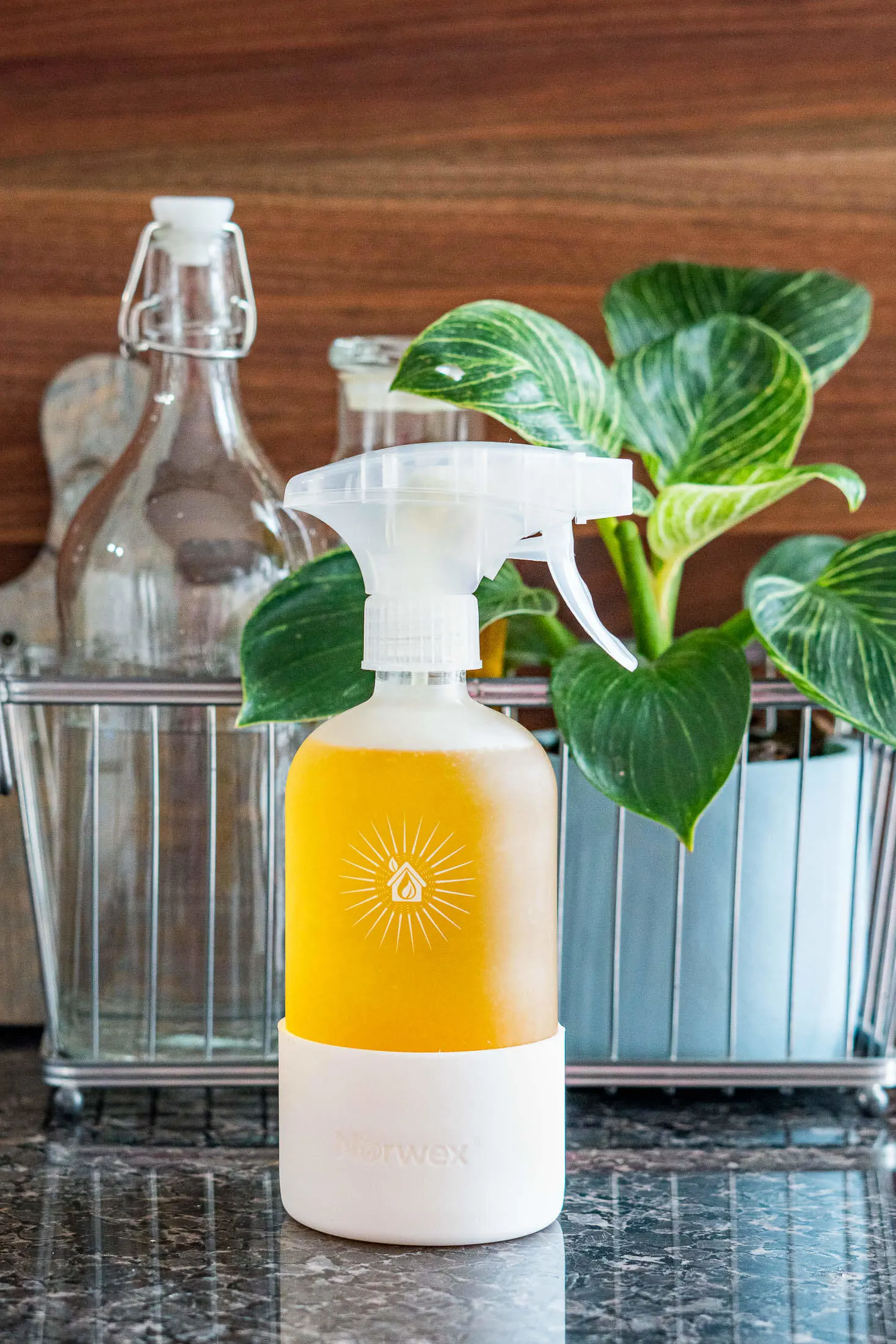
As an Amazon Associate I earn from qualifying purchases.
Jump to:
No. 1 --> This is a long process! You're going to want to allow the orange peels to steep in the vinegar for at least 4-6 weeks. The longer the orange peels are left to infuse the vinegar, the better the orange vinegar will smell. Shorter infusion times will result in a fainter orange scent.
No. 2 --> If you can find it, get your hands on some cleaning vinegar. I use Allen's Double Strength Cleaning Vinegar and it's got 10% acetic acid, vs 5% in regular distilled vinegar!
No. 3 --> Use your vinegar in a ventilated area! I've gotten carried away cleaning in the bathroom without opening the window or kicking on the fan and can confirm; the fumes are strong!
Key Ingredients
Orange Peels: For this orange vinegar, we're using the peels of navel oranges, but the peels of any variety of orange or citrus fruit will work! I like to give my oranges a good scrub with hot water and soap to remove any protective wax or pesticides on the fruit, might as well not spread that all over my kitchen counter!
Vinegar: This recipe works great with distilled white vinegar or cleaning vinegar, though cleaning vinegar should be further diluted.
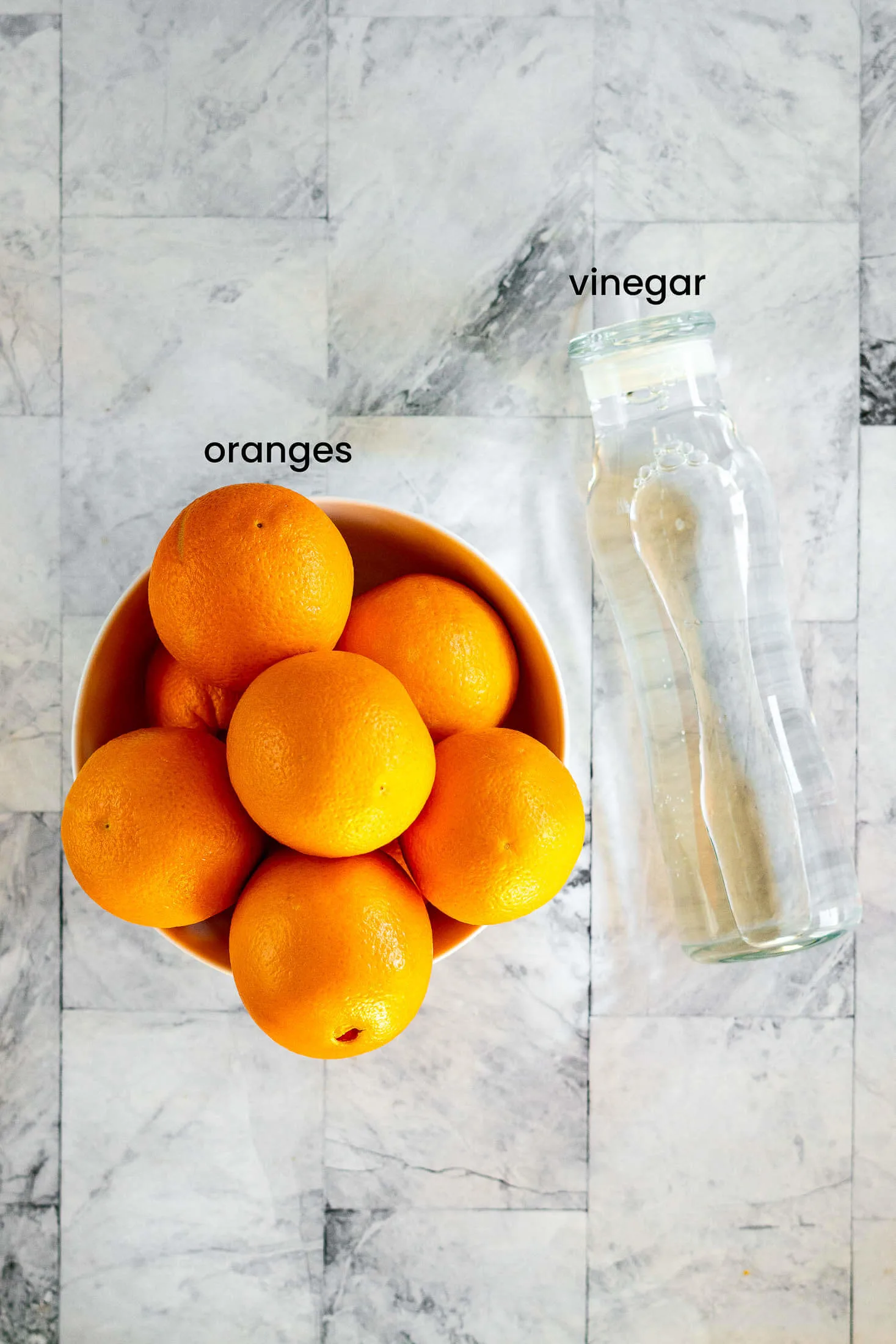
How To Make Orange Vinegar
Prep the peels:
- Soak oranges in hot soapy water for about a minute, and scrub them vigorously to remove waxes, pesticides, or processing residue.
- Dry the oranges well, cause wet oranges are slippery and we don't want any wounds!
- Use a sharp peeler, and peel JUST the orange zest off the oranges, leave the bitter white pith behind as much as possible.
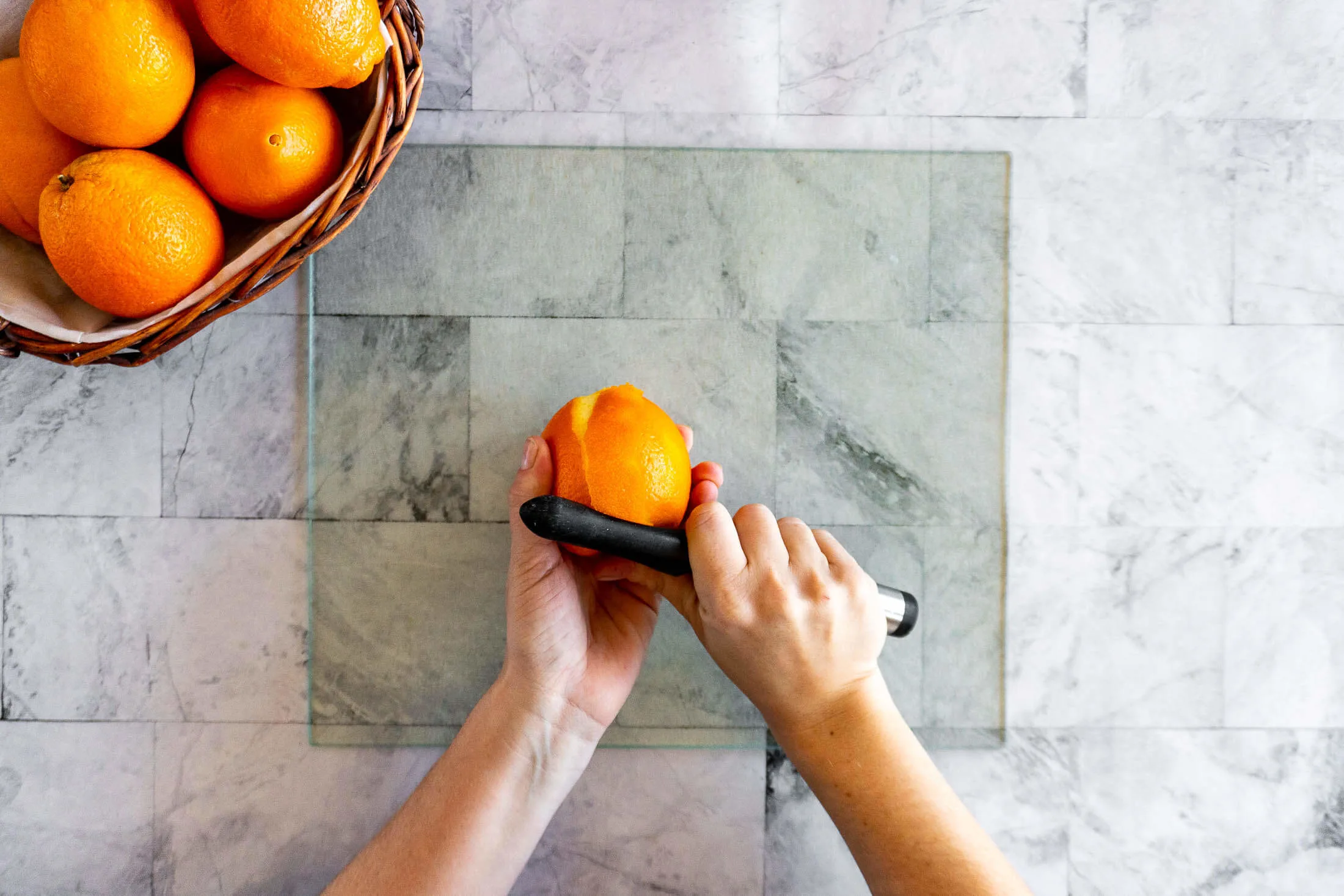
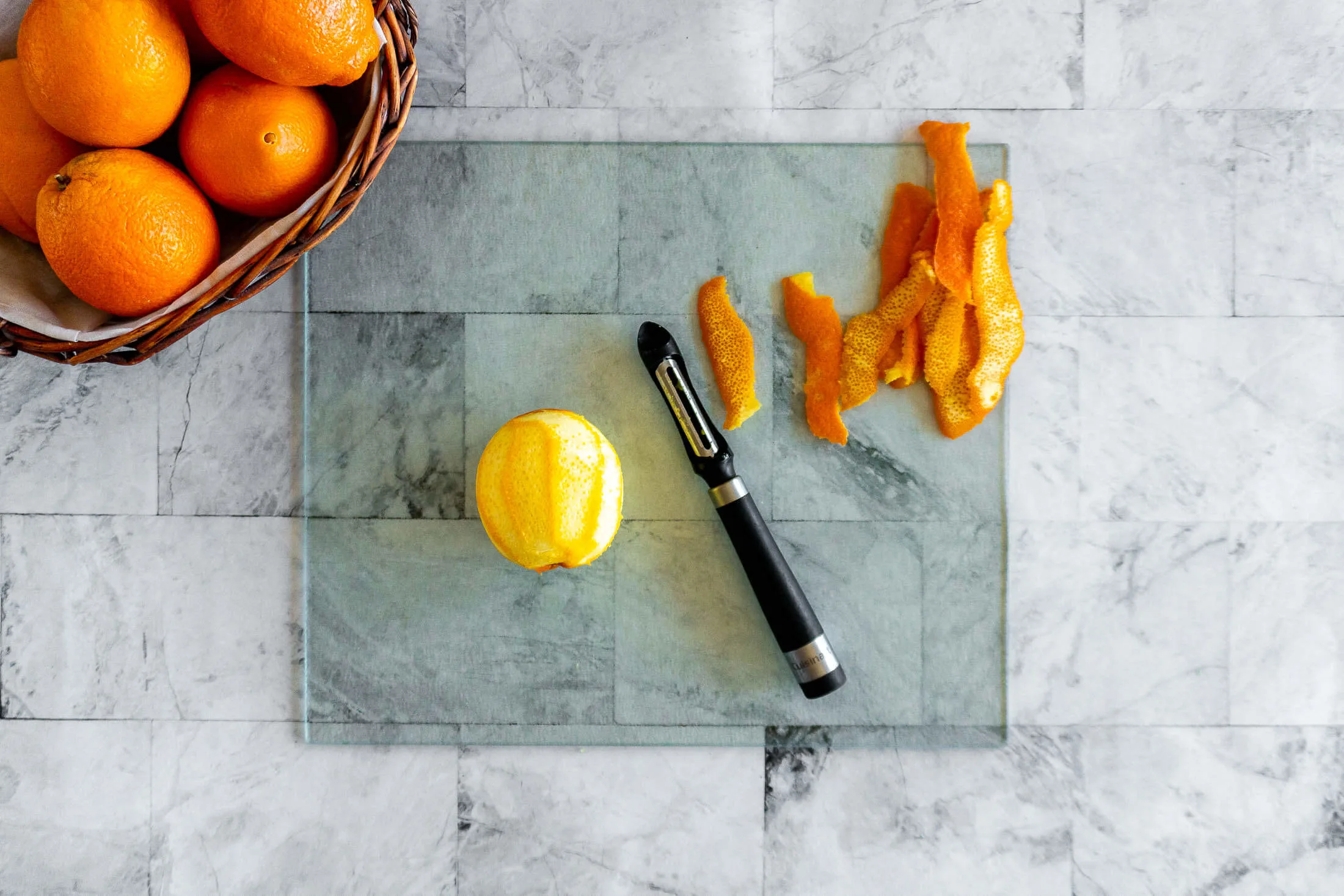
Steep the peels:
- In a small glass jar, add all the peels you can possibly fit. Then top it off with your desired vinegar.
- Close the lid tightly and place it somewhere dark to steep for up to 6 weeks.
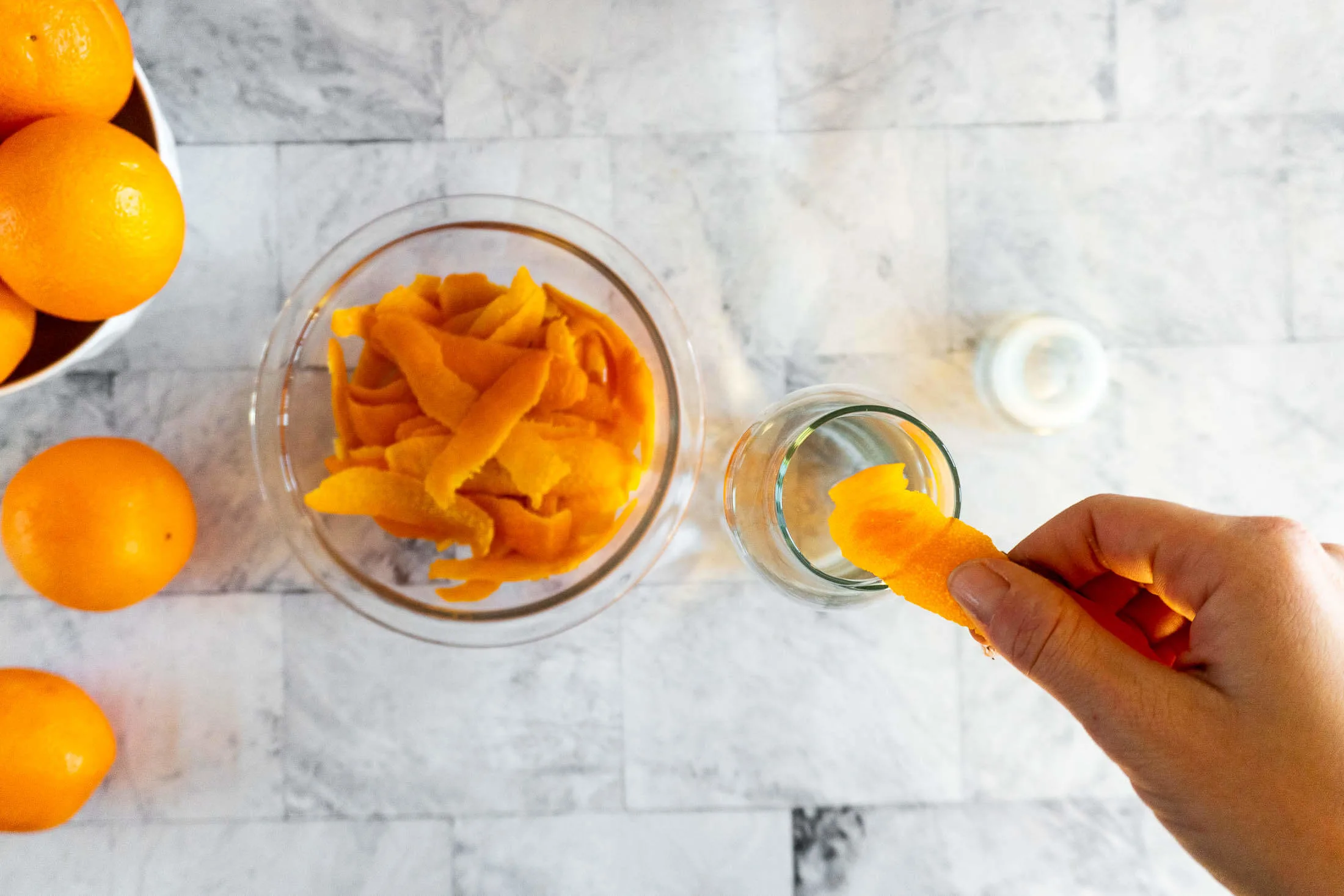
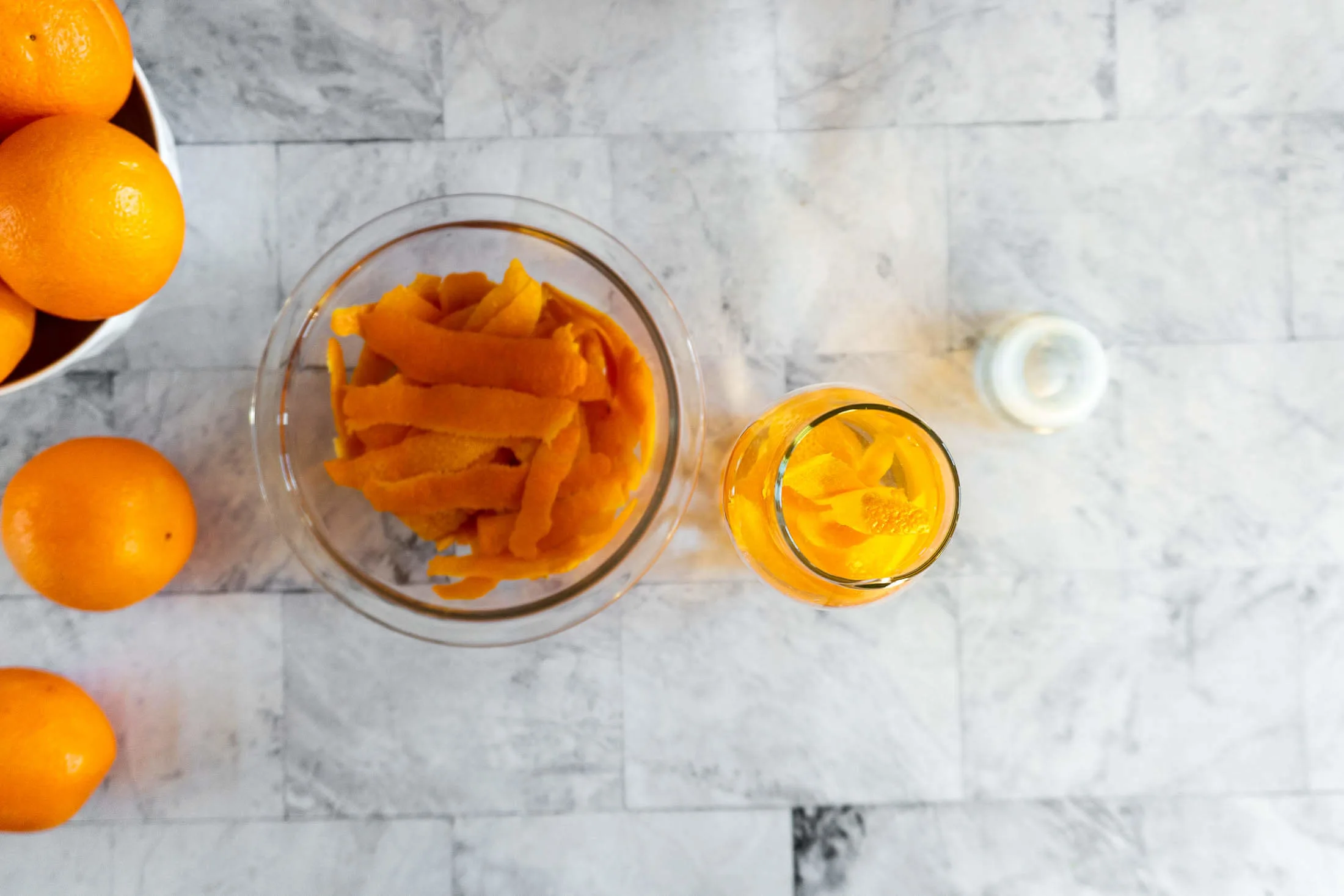
Strain the vinegar:
- Once the peels have steeped and the vinegar smells more like orange than like vinegar, strain the vinegar through a fine-mesh sieve.
- Dilute white vinegar 1:1 with filtered water, and cleaning vinegar 2:1 with filtered water and transfer it to your favorite spray bottle.
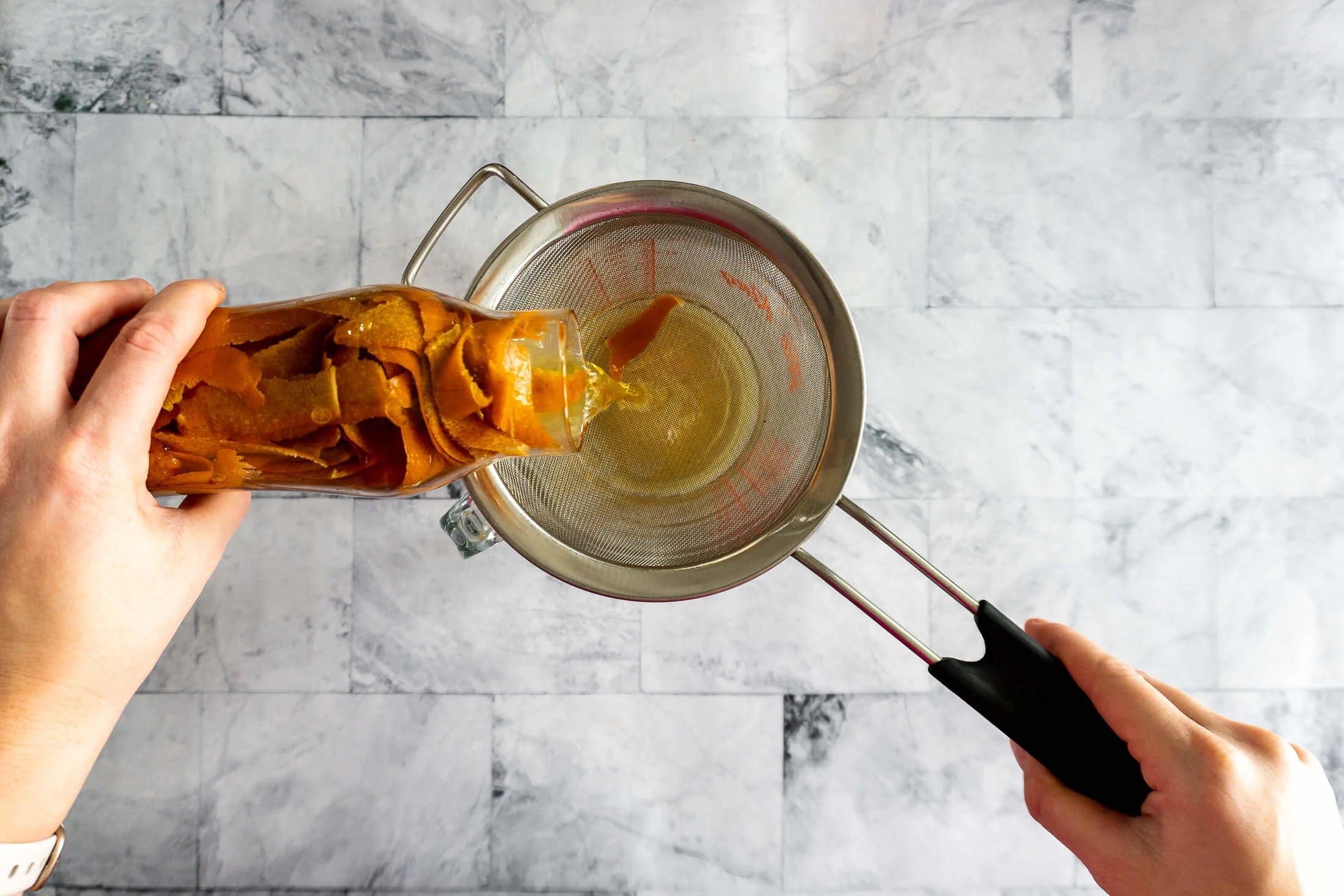
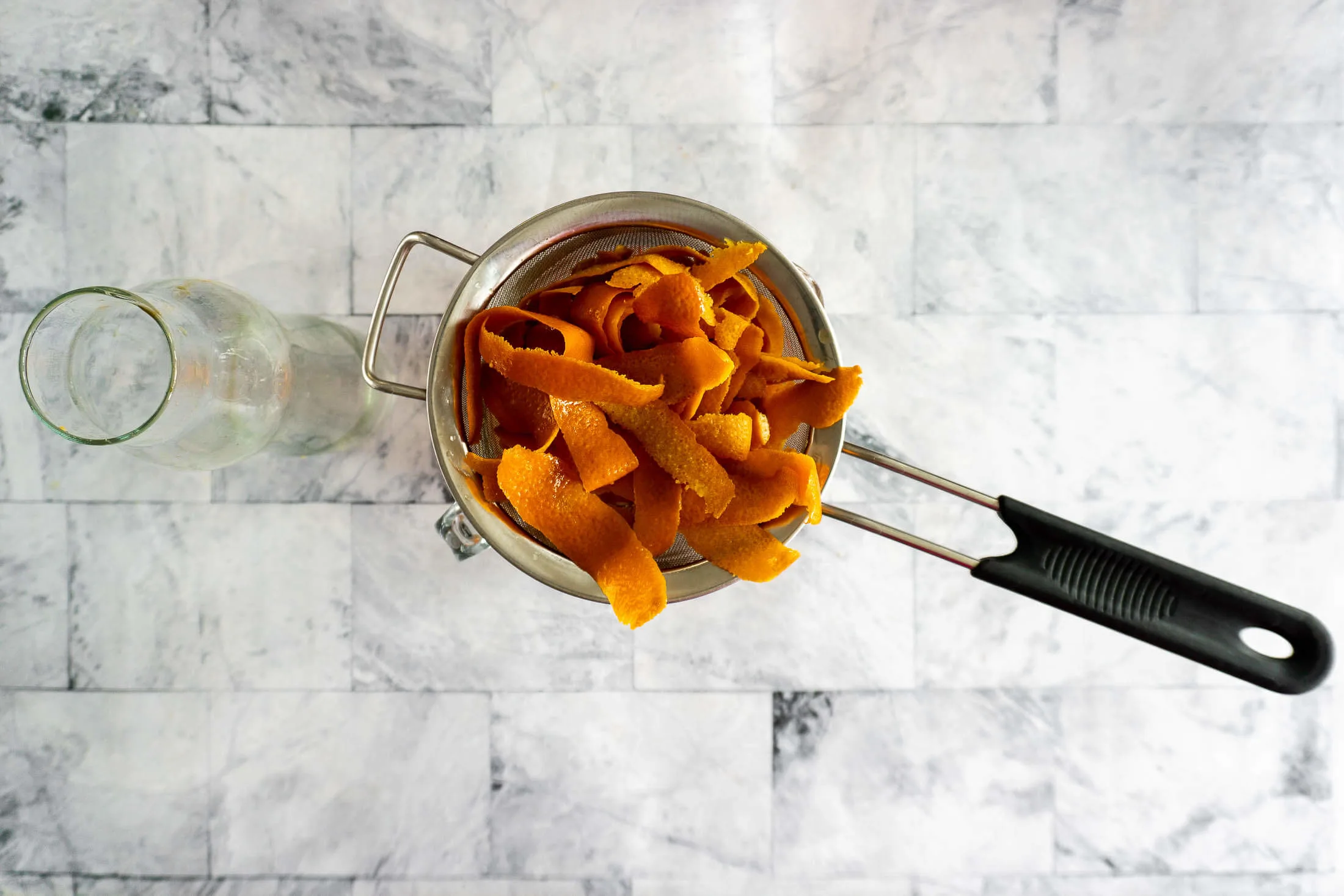
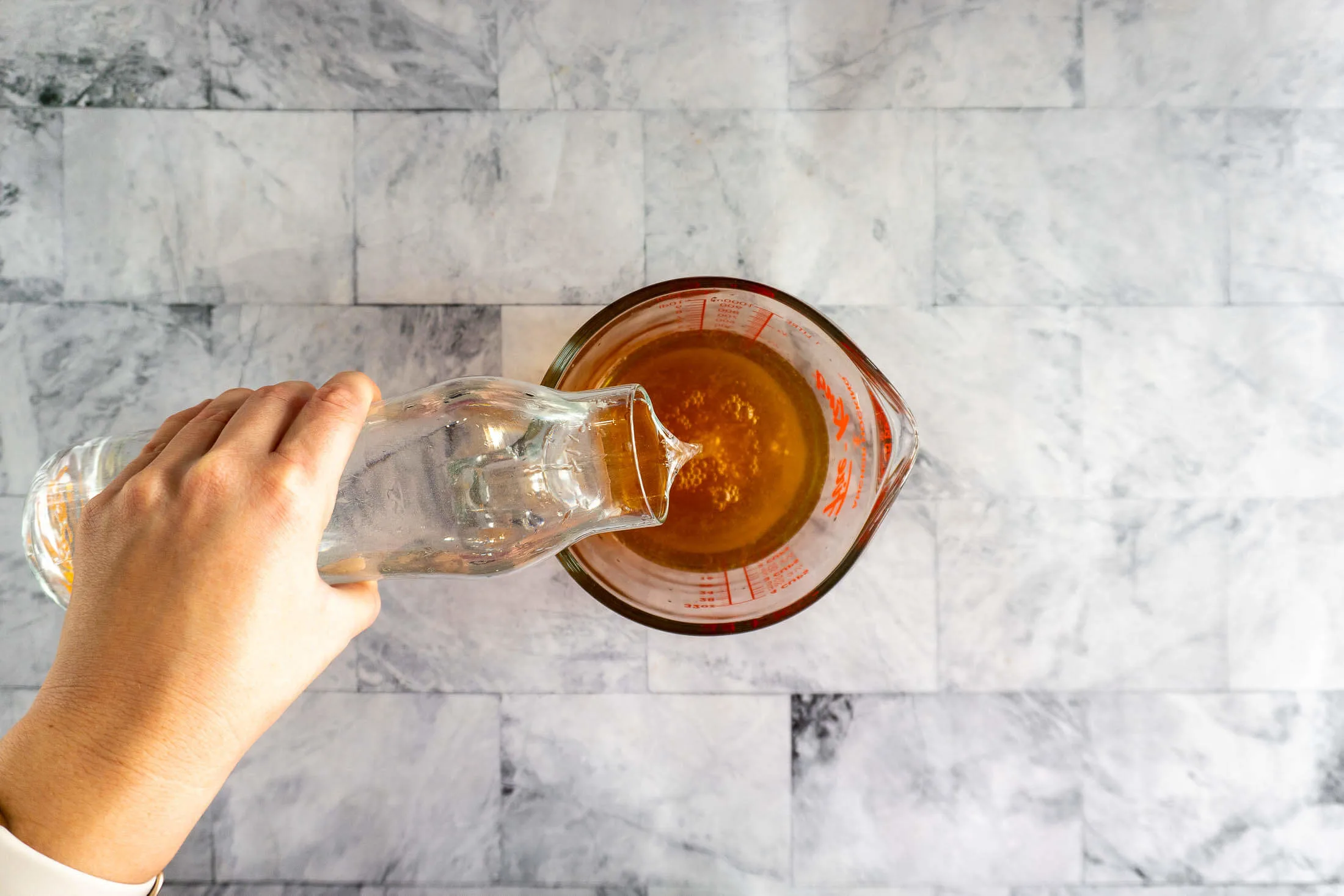
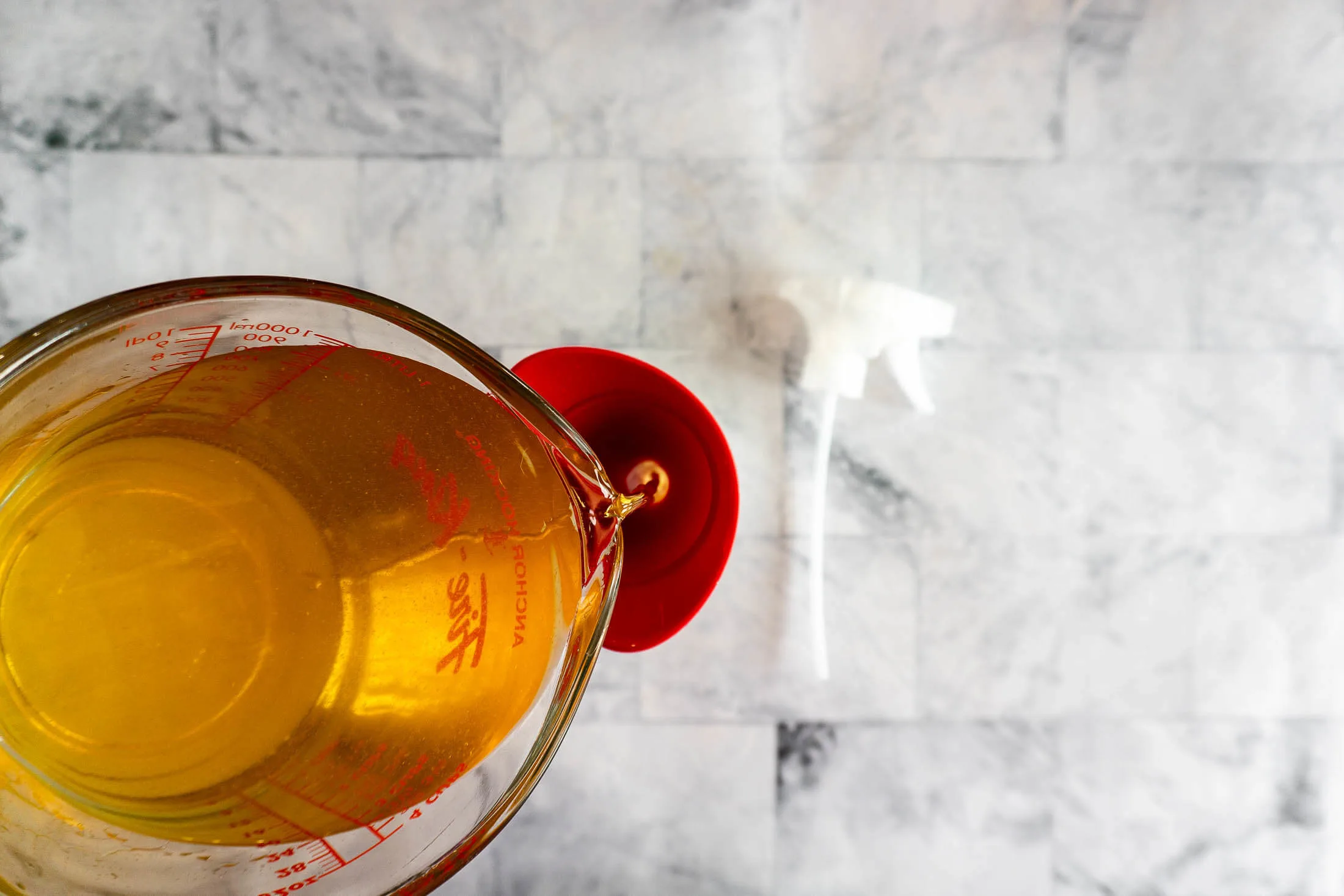
Use the vinegar:
- Just do it! Get cleaning! (I know, that's rich coming from someone who loathes cleaning! But it's kinda fun with your new homemade cleaner).
- Spray on and wipe off!
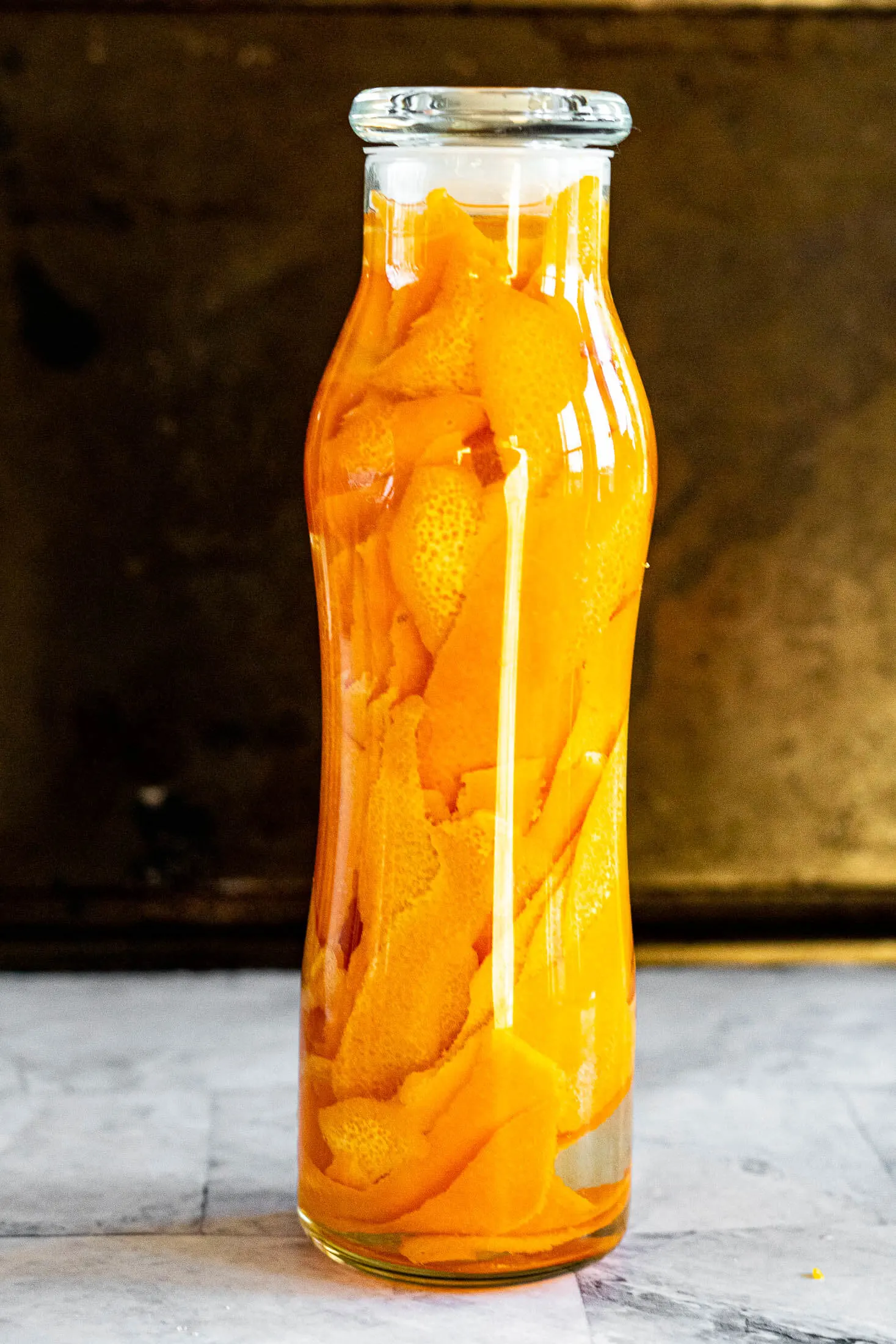
How To Use Orange Vinegar
Be cautious where you use your vinegar, as it is acidic! As with any cleaning product, you should test it in an inconspicuous place to ensure it doesn't inadvertently do damage!
Bathroom:
I clean everything in my bathroom with vinegar spray! This includes the tub, ceramic tiles, toilet, sink, mirror, shower doors, etc.
Kitchen:
I think vinegar cleaner gets the biggest workout in my kitchen, likely because I'm forever cooking and cleaning! It works great on stainless steel appliances, a glass cooktop, inside the oven, the sink, cabinets, handles, the glass door to my oven, and more.
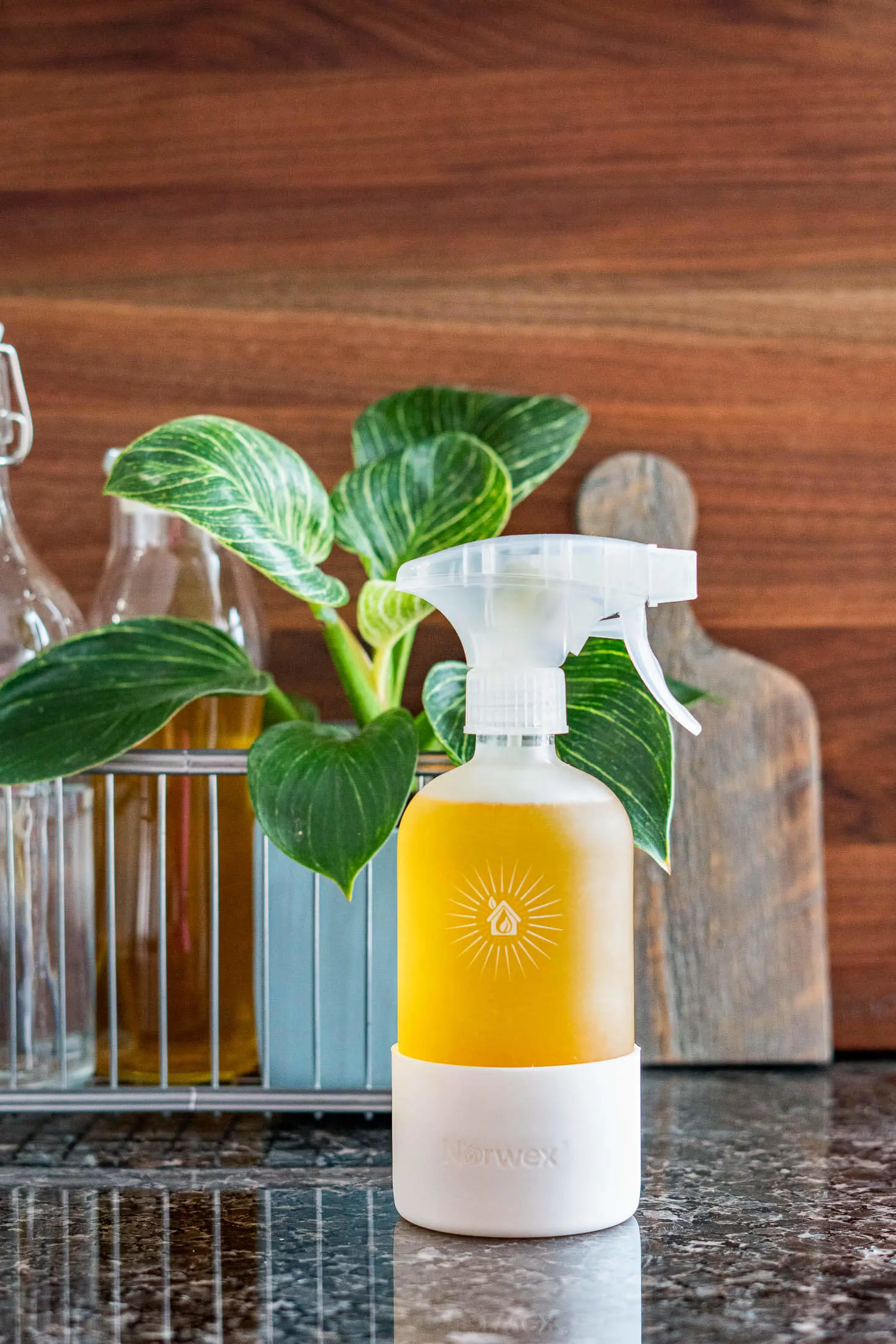
Recommended Equipment
Glass jar: Any glass container with a lid will work for this project, I used a glass bottle, but a mason jar would work too!
Spray bottle: I like to use a glass spray bottle for this. Once the oranges have steeped in the vinegar they release some of their volatile chemical compounds (essential oils). These compounds can be hard on certain plastics, so to avoid any problems, I use a glass Norwex bottle, but I found some similar glass spray bottles on Amazon!
DIY Orange Vinegar
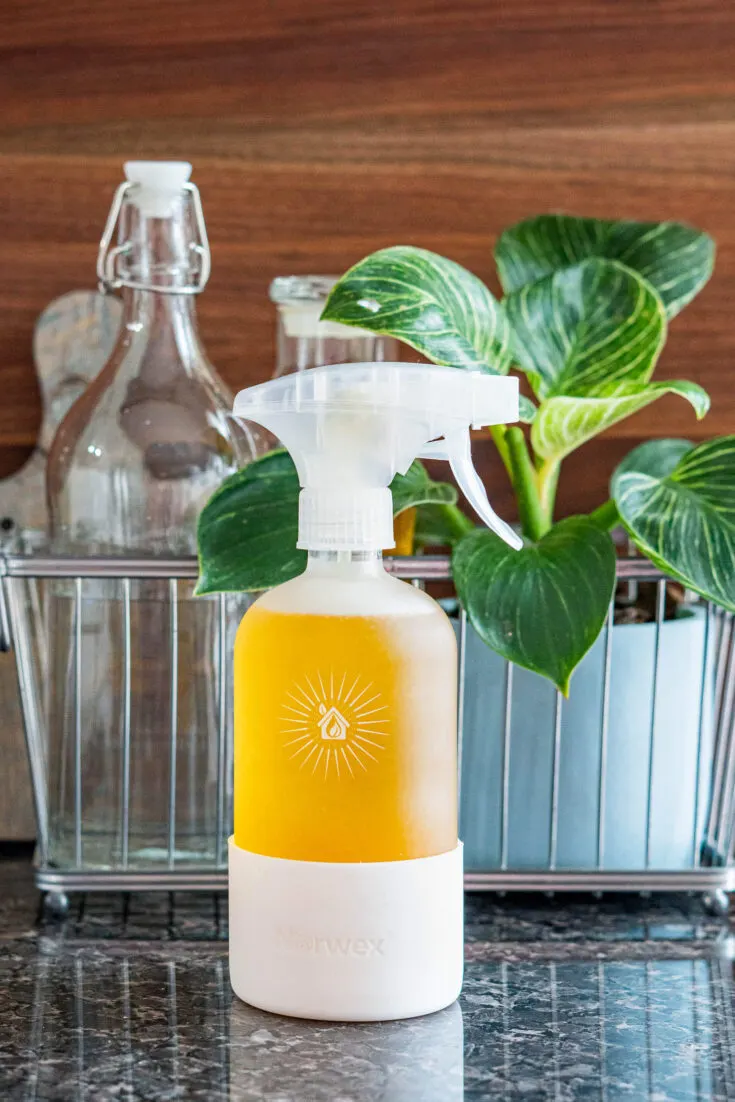
We love this orange vinegar cleaner! It’s easy to make and it works on everything from the bathroom mirror to your kitchen counters. And did we mention that it smells amazing too? You can use this cleaner in every room of your house - even on soap scum, hard water stains, and dirt without scratching surfaces or leaving streaks. Plus, with just three ingredients (orange peels, vinegar, and water) you can whip up a batch whenever you need one.
Materials
- Orange peels
- Vinegar
Tools
- Vegetable Peeler
- Glass jar
- Fine mesh sieve
- Spray bottle
Instructions
Prep the peels:
- Soak oranges in hot soapy water for about a minute, scrub them vigorously to remove waxes, pesticides, or processing residue.
- Dry the oranges well, cause wet oranges are slippery and we don't want any wounds!
- Use a sharp peeler, and peel JUST the orange zest off the oranges, leave the bitter white pith behind as much as possible.
Steep the peels:
- In a small glass jar, add all the peels you can possibly fit. Then top it off with your desired vinegar.
- Close the lid tightly and place somewhere dark to steep for up to 6 weeks.
Strain the vinegar:
- Once the peels have steeped and the vinegar smells more like orange than like vinegar, strain the vinegar through a fine mesh sieve.
- Dilute the vinegar 1:1 with water, so 1 cup water to each 1 cup of vinegar then transfer to your favorite spray bottle.
Use the vinegar:
- Just do it! Get cleaning! (I know, that's rich coming from someone who loathes cleaning! But it's kinda fun with your new homemade cleaner).
- Spray on and wipe off!
Notes
When not to use vinegar as a cleaner:
It is not recommended to use vinegar cleaner on granite, marble, soapstone, limestone, or any natural stones as it can both pit the stone and/or damage the finish reducing shine. Avoid using your cleaner on bare aluminum, cast iron cookware, and kitchen knives as it can pit the metal. Skip the vinegar on finished or waxed wood surfaces, this includes wood floors. Don't spray your cleaning vinegar on electronics, especially screens - the acidity can damage their coatings.
What to do with the white pith?
We've used all that we can from these fruits by enjoying fresh and freezing orange pieces or dehydrating orange slices, but now we have to decide what to do with the pith. It's pretty much inedible, very bitter, and has a weird texture, the best thing to do with this part of the orange is to return it to nature. Add the orange pith to your summer or winter compost as part of the greens additions.
Pin This How To Make Orange Vinegar Guide!
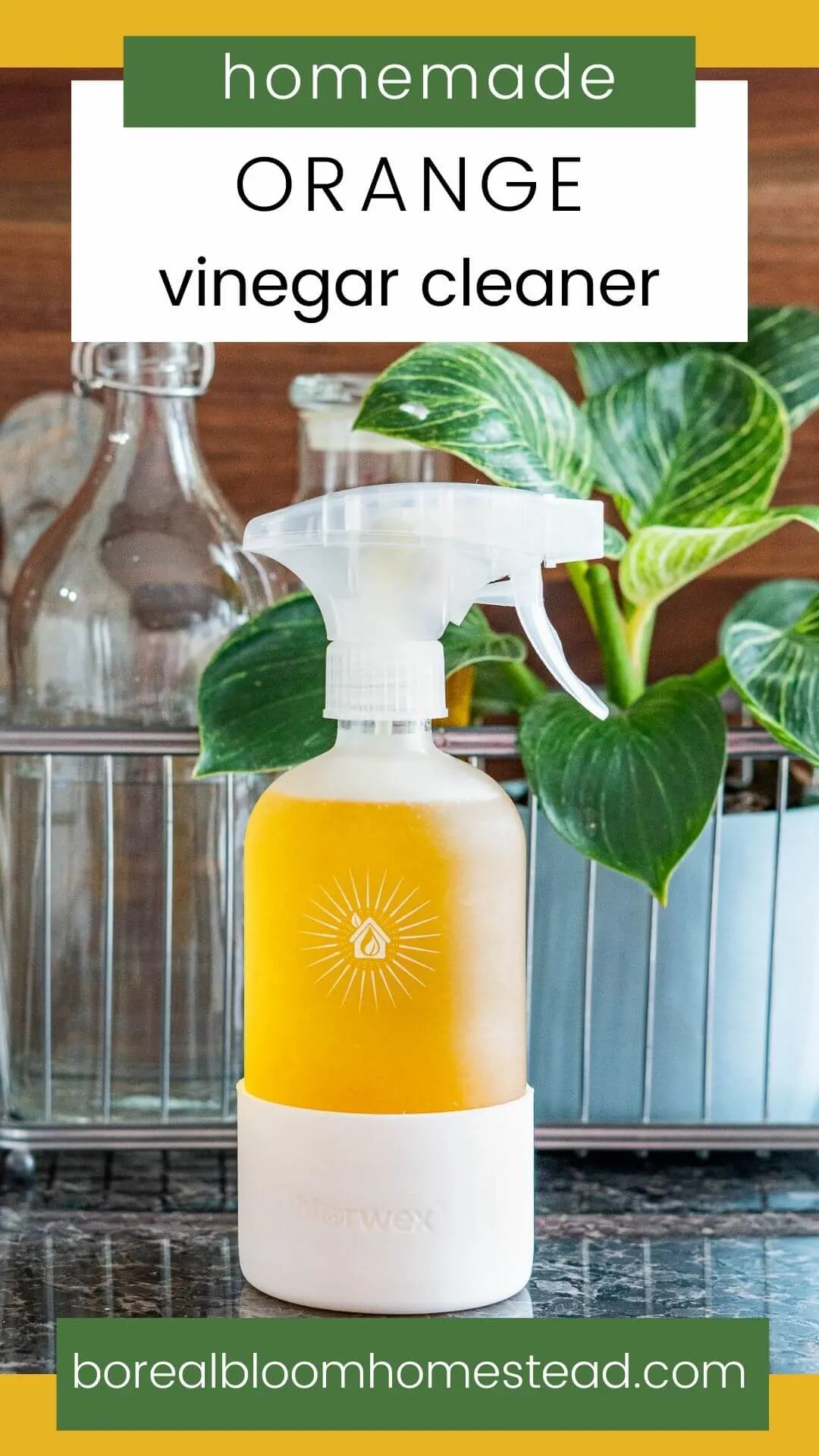

Wendy Wong
Friday 21st of July 2023
I wonder how long it will last you leave it in room temperature or should I keep the orange vinegar in the refrigerator.
Ally
Tuesday 25th of July 2023
Hey Wendy,
It will last until it's gone at room temperature! The vinegar will absolutely preserve any organic matter left in the vinegar after you've strained out the peels!